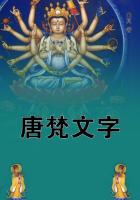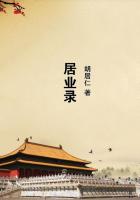COMMON IDEAS REGARDING THE HISTORY OF PHILOSOPHY.
At this point appear these ordinary superficial ideas regarding the history of Philosophy which have to be referred to and corrected. As regards these very current views, which are doubtless known to you, gentlemen, for indeed they are the reflections most likely to occur in one's first crude thoughts on a history of Philosophy, I will shortly explain what requires explanation, and the explanation of the differences in philosophies will lead us further into the matter itself.
a. The History of Philosophy as an accumulation of Opinions.
History, at the first glance, includes in its aim the narration of the accidental circumstances of times, of races, and of individuals, treated impartially partly as regards their relation in time, and partly as to their content. The appearance of contingency in time-succession is to be dealt with later on. It is contingency of content which is the idea with which we have first to deal-the idea of contingent actions. But thoughts and not external actions, or griefs, or joys, form the content of Philosophy.
Contingent thoughts, however, are nothing but opinions, and philosophical opinions are opinions relating to the more special content of Philosophy, regarding God, Nature and Spirit.
Thus we now meet the view very usually taken of the history of Philosophy which ascribes to it the narration of a number of philosophical opinions as they have arisen and manifested themselves in time. This kind of matter is in courtesy called opinions; those who think themselves more capable of judging rightly, call such a history a display of senseless follies, or at least of errors made by men engrossed in thought and in mere ideas. This view is not only held by those who recognize their ignorance of Philosophy. Those who do this, acknowledge it, because that ignorance is, in common estimation, held to be no obstacle to giving judgment upon what has to do with the subject; for it is thought that anybody can form a judgment on its character and value without any comprehension of it whatever. But the same view is even held by those who write or have written on the history of Philosophy. This history, considered only as the enumeration of various opinions, thus becomes an idle tale, or, if you will, an erudite investigation. For erudition is, in the main, acquaintance with a number of useless things, that is to say, with that which has no intrinsic interest or value further than being known. Yet it is thought that profit is to be derived from learning the various opinions and reflections of other men. It stimulates the powers of thought and also leads to many excellent reflections; this signifies that now and then it occasions an idea and its art thus consists in the spinning one opinion out of the other.
If the history of Philosophy merely represented various opinions in array, whether they be of God or of natural and spiritual things existent, it would be a most superfluous and tiresome science, no matter what advantage might be brought forward as derived from such thought-activity and learning. What can be more useless than to learn a string of bald opinions, and what more unimportant? Literary works, being histories of Philosophy in the sense that they produce and treat the ideas of Philosophy as if they were opinions, need be only superficially glanced at to find how dry and destitute of interest everything about them is.
An opinion is a subjective conception, an uncontrolled thought, an idea which may occur to me in one direction or in another: an opinion is mine, (3) it is in itself a universal thought which is existent in and for itself. But Philosophy possesses no opinions, for there is no such thing as philosophical opinions. When we hear a man speaking of philosophical opinions, even though he be an historian of philosophy itself, we detect at once this want of fundamental education. Philosophy is the objective science of truth, it is science of necessity, conceiving knowledge, and neither opinion nor the spinning out of opinions.
The more precise significance of this idea is that we get to know opinions only, thus laying emphasis upon the word Opinion. Now the direct opposite of opinion is the Truth; it is Truth before which mere opinion pales. Those who in the history of Philosophy seek mere theories, or who suppose that on the whole only such are to be found within it, also turn aside when that word Truth confronts them. Philosophy here encounters opposition from two different sides. On the one hand piety openly declares Reason or Thought to be incapable of apprehending what is true, and to lead only to the abyss of doubt; it declares that independent thought must be renounced, and reason held in bounds by faith in blind authority, if Truth is to be reached. Of the relation existing between Religion and Philosophy and of its history, we shall deal later on. On the other hand, it is known just as well, that so-called reason has maintained its rights, abandoning faith in mere authority, and has endeavoured to make Christianity rational, so that throughout it is only my personal insight and conviction which obliges me to make any admissions. But this affirmation of the right of reason is turned round in an astonishing manner, so that it results in ****** knowledge of the truth through reason an impossibility. This so-called reason on the one hand has combated religious faith in the name and power of thinking reason, and at the same time it has itself turned against reason and is true reason's adversary. Instinct and feeling are maintained by it against the true reason, thus ****** the measure of true value the merely subjective-that is a particular conviction such as each can form in and for himself in his subjective capacity. A personal conviction such as this is no more than the particular opinion that has become final for men.














